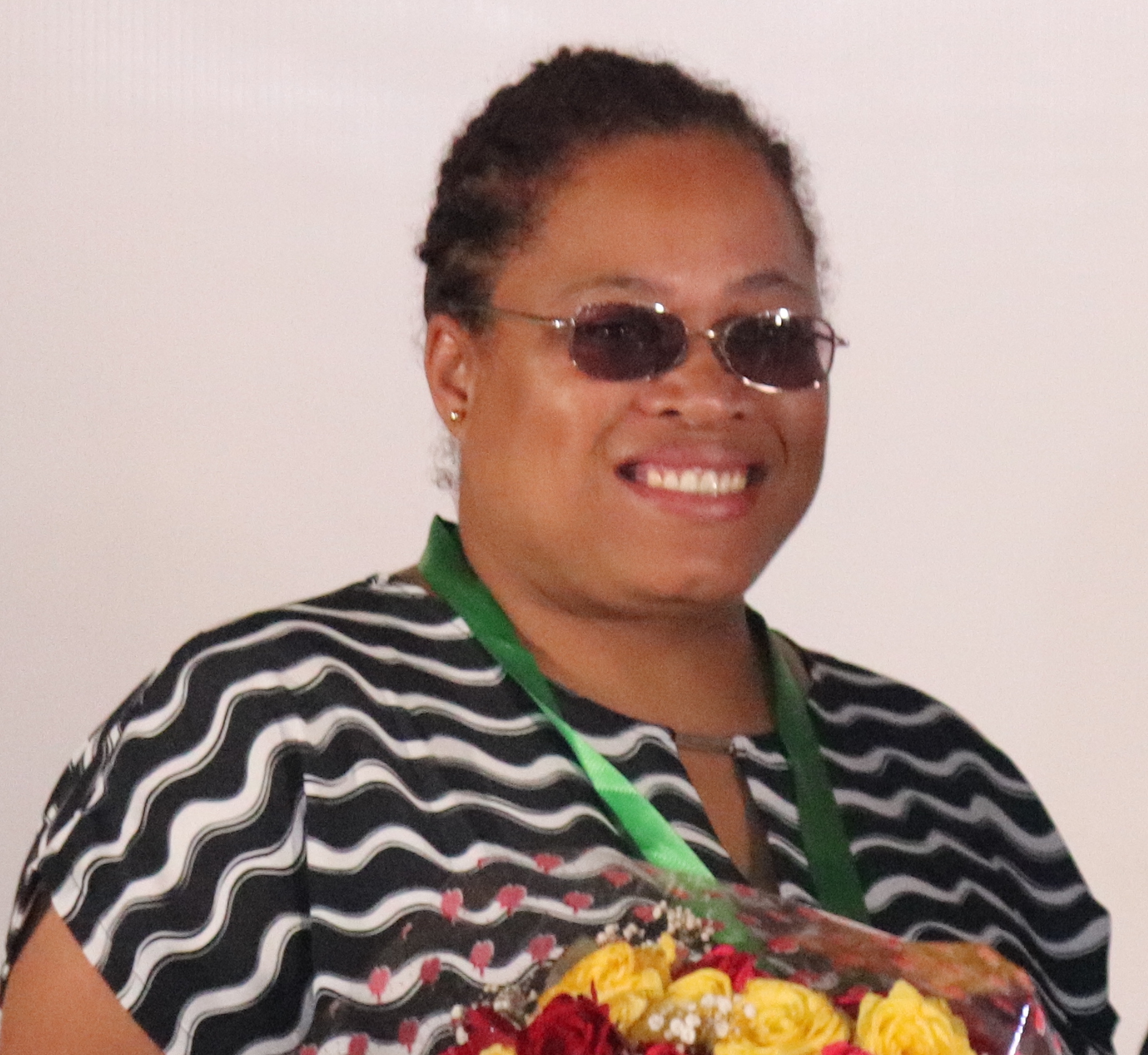On 17 February 2023, in Ethiopia’s rustic resort of Bishoftu, more than 5000Km from her homeland, Mary Da Silva was announced winner of the 2023 AfricanDefenders Shield Award, in the presence of hundreds of colleague human rights defenders from 36 African countries. It was a fitting validation for the Eswatini human rights lawyer, whose sense of empathy and sensitivity to injustice has been a defining hallmark of her career.
Born 45 years ago in Lubombo, eastern Eswatini, the last of 4 siblings, Mary attributes her values to her upbringing. Although she was born in Eswatini, her parents are originally from Mozambique, and only relocated to eSwatini at the start of the Mozambican civil war that lasted between 1977-1992, which ravaged families and displaced many others. As one of the earliest to escape and settle in Eswatini, Mary’s family shouldered the responsibility of being a gateway for many other Mozambicans escaping the violence in their country for a more peaceful and stable livelihood in Southern Africa. This experience was illuminating for Mary:
“Everyone was welcome in our home. Several times, we had to host people staying over for long periods of time as they tried to start all over again, having lost everything in the civil war back home. They would be in so much anguish, and we were required to go out of our way to make their transition as less distressing as possible. So I grew up with a keen sensitivity to injustice and people’s pain, regardless of who they were or where they were coming from. I was raised to see everybody as a human being first, with the same needs,” she says.
Mary Pais Da Silva Tweet
That passion for justice would drive her to study law for her undergraduate studies at the University of Eswatini, from which she was admitted to the Eswatini bar in 2003. Once in practice however, the idealistic promise of law as a tool for justice soon clashed with the cynical reality in her country, when she realized that justice was a product to be afforded, not a service available to all.
“I realized that the law only worked for those who could afford a lawyer, and that justice remained firmly out of reach for the majority poor. This was dispiriting, and I could not in good conscience continue to practice commercial law, serving a minority in a country where the majority remained helpless, “she says.
Mary Pais Da Silva Tweet
Mary then decided to prioritise public interest cases, mostly about women and children’s rights issues, serving a clientele that for the most part could not afford to pay for her services. Here, she mostly handled cases of women seeking divorces from their abusive partners, child-support for abandoned children, or seeking to enforce their rights to land. It is in this space that she met the now deceased Thulani Maseko, a fellow human rights lawyer and passionate advocate for justice, who invited her to join a network of likeminded human rights lawyers called Lawyers for human rights.
Mary eventually joined the Lawyers for Human Rights team in 2012, and together with colleagues, decided to use their platform to wholly advance the cause of human rights. By then, however, she was already a marked attorney. At the time, she was a leading attorney in case where three Eswatini youth who were charged with terrorism for allegedly petrol bombing houses belonging to two members of parliament and a senior police officer, for which she was constantly trailed and threatened. The previous year, in 2011, she was one of the prominent figures behind the lawyers’ boycott of the country’s courts protesting the judiciary’s lack of independence.
“This made my litigation work with Lawyers for Human Rights difficult,” she says, adding, “I was losing all my cases, not because I was not competent, but because I was the ‘wrong’ attorney. I had become a target not only for the government, but also eSwatini’s then-chief justice, whose resignation we had called for in the court boycott. So, I thought, I am doing an injustice to my clients to persist in practice, when the courts are already biased against me.”
Mary Pais Da Silva Tweet
Frustrated with litigation, Mary decided to withdraw and focus all her energies to fulltime human rights advocacy and to pursue a safe working environment for human rights defenders.
In 2021, Mary was shot at as she left court where two members of parliament were being charged with subversion for their role in the students’ protests demanding for parliamentary democracy in eSwatini that rocked the country in June that year. She escaped unhurt, but it was the murder, in cold blood, of her comrade and friend, Thulani Maseko, on 21 January 2023, that shook her hard. She says, she has not yet recovered from it, nor fully processed her grief.
Mary eventually joined the Lawyers for Human Rights team in 2012, and together with colleagues, decided to use their platform to wholly advance the cause of human rights. By then, however, she was already a marked attorney. At the time, she was a leading attorney in case where three Eswatini youth who were charged with terrorism for allegedly petrol bombing houses belonging to two members of parliament and a senior police officer, for which she was constantly trailed and threatened. The previous year, in 2011, she was one of the prominent figures behind the lawyers’ boycott of the country’s courts protesting the judiciary’s lack of independence.

